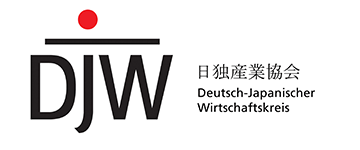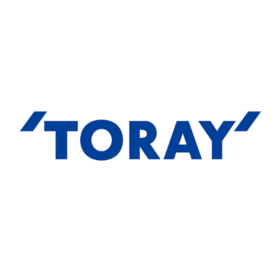Open questions and initial answers
DJW協賛会員Taylor Wessingからのお知らせ
Seldomly, a press release has caused so much excitement as the one on the Federal Labour Court's recent decision of 13 September 2022 on the recording of working time (file no 1 ABR 22/21). The rumors are still simmering, bubbling, steaming, boiling, simmering.... From the swansong of trust-based working time, to time clocks, to constitutional concerns and speculations about what the ECJ could have meant in 2019 and what the judges at the Federal Labour Court could have misunderstood - there is a lot of uncertainty and crystal ball reading.
A differentiated, unagitated view is probably more appropriate at this point in time.
1. Background and content of the decision
The decision is primarily concerned with the question of whether the German works council, a special non-mandatory body in German companies, has a right of initiative to introduce electronic time recording. Since negotiations with the works council failed, the works council was trying to force the introduction of such a system through the arbitration proceedings. While the Regional Labor Court of Hamm still affirmed such a right of initiative, the Federal Labor Court denied it because a statutory duty to record time (i.e. "whether") must be affirmed in implementation of the CCOO ruling of the ECJ of May 2019 and in view of the German labor protection regulations.
2. Open questions and initial answers
The only clear statement that can be taken from the short press release at this early stage is that the lower Regional Labor Court of Hamm wrongly assumed a right of initiative of the works council to introduce a working time recording system. Such a right of initiative does not exist. However, since the reasons for the decision are not yet available, further hasty conclusions should be avoided. I expect, however, that the Federal Labour Court will, as usual, deal with the ECJ case law and the labor protection provisions in German labor protection law in a very careful and differentiated manner.
As before, it is unlikely to be possible to give a blanket answer to "how" this legal obligation to record working time must be structured in each case. The approach of occupational health and safety law is rather activity or workplace related, in the words of the statute quoted by the press release "taking into account the type of activities and the number of employees" (cf. section 3 para. 2 of German Occupational Health and Safety Act). The standard is always the risk assessment (section 5 of the Occupational Health and Safety Act), in the context of which working time must also be taken into account.
Depending on the operation/activity etc., quite different systems can be used - apart from special legal regulations. With regard to the "how" of recording working time, one should examine whether the works council has a right of co-determination. This is not automatic either. If, for example, a working time recording system is to be designed electronically, the German works council (if existing in the company) is likely to have to be involved because of the "classic section 87 para. 1 no. 6 Works Constitution Act". This may not be the case with other systems. Of course, the further criteria of the ECJ case law, in particular security against manipulation, would have to be taken into account in the operational design of such systems.
Against this background, companies with relatively simple working time recording are still in line with the "new" decision – just think of a café that is only open for three hours in the afternoon or a kindergarten that is only open in the morning. There are also a number of jobs which, by their nature or for other reasons of occupational health and safety law, can only be carried out for a short time. It remains to be seen what will be considered a "system for recording working time" in the future.
We do not expect that the Federal Labour Court will also make statements on certain forms of working time, such as trust-based working time, or the delegation of working time, possible concrete monitoring obligations or their design, on the documentation of overtime or work on Sundays and public holidays under working time law (cf. section 16 of German Working Time Act) or the time interval or the manner of recording. After all, these aspects of practical relevance were not the subject of the lower courts. Mobile working is therefore still possible.
Just for the sake of completeness: Particularly in exchanges with Japan, it happens that data on working time is recorded in Germany and is transferred to Japan. Of course, employee data protection applies to the recording of working hours. For instance, regarding apps it would have to be ensured particularly that the data is processed in compliance with the GDPR and is not sent outside the EU/secure third countries such as Japan. Comprehensive monitoring of employees is also problematic in Germany because of personal rights. This was ruled out, for example, in the key logger decision of the Federal Labour Court on working time fraud. Last but not least: The European definition of "employee" under the European health and safety directives is very wide (in contrast to the directive of working time). Thus, employed managing directors will also fall under the duty of working time recording. These questions will have to be answered.
3. What's new from the legislator?
The CCOO ruling of the European Court of Justice from 2019 has already resulted in a clear legislative mandate to exploit the scope for manoeuvre appropriately and in accordance with European law. The Federal Labor Ministry (BAMS) is currently preparing a corresponding draft law with the involvement of the social partners as part of the coalition agreement. It remains to be seen how this process - which has been relatively firm for years - will progress and how this - very challenging - legislative leeway will be used.
However, over-regulation á la increased written form requirements, as we have recently experienced with the reform of the Verification Act, should be avoided. Instead, the diversity of working time models and the diversity of entrepreneurial options must be preserved - especially against the background of the international, European, economic and social/social law complexities.
4. Is there now an entrepreneurial obligation to act?
In view of the numerous open questions, the reasons for the decision should first be awaited and then carefully analyzed. A hasty investment, for example, in time recording software or a complete change in the good corporate culture in dealing with working time does not seem advisable at present. It would be more appropriate to examine the risk assessment together with the health and safety officer for any need for adaptation.
From a manager's point of view, the decision should also be taken as an opportunity to review working time compliance. An appropriate compliance system has been a management obligation at the latest since the OLG Nuremberg decision of March 2022. This system must also deal with the classic HR issue of working time compliance. However, the interplay of occupational health and safety, working time, special regulations and remuneration issues is a challenging area of labor law. Systems adapted to the corporate culture are absolutely necessary. The need for training should not be underestimated.
Working time compliance has advantages when implemented smartly, taking into account the respective corporate culture: Because a working time analysis often goes hand in hand with efficiency increases (keyword: recognizing over- and under-capacities). In addition, smart systems contribute to a sustainable corporate culture. Last but not least: Those who deal with working time are well prepared for possible stricter requirements, whether from jurisdiction or on the part of the legislator.
Members for Members Service
We keep DJW members up to date. If you are interested, please contact TaylorWessing, Professor Dr. Michael Pils, who is also a board member of the German-Japanese Labor Law Association (DJGA), for further insights. At short notice, there will be a coffee break on 28 September 2022 - all info is available on TaylorWessing's website or you can register directly here (German language only).
























